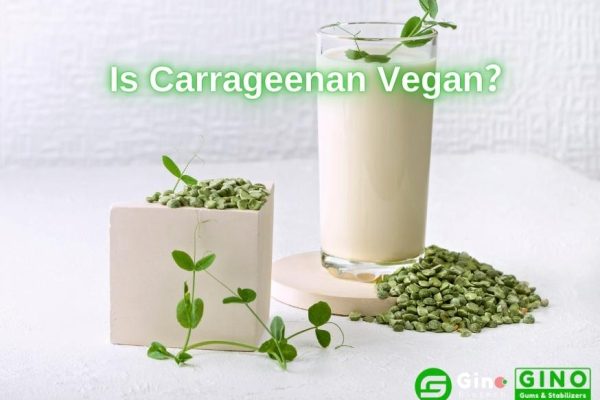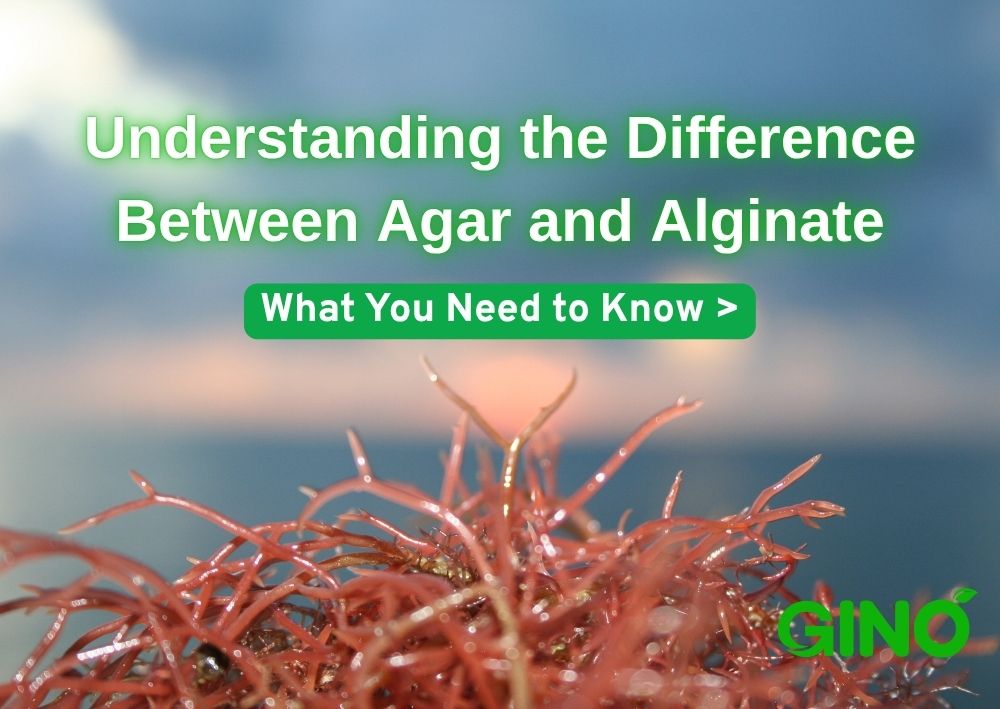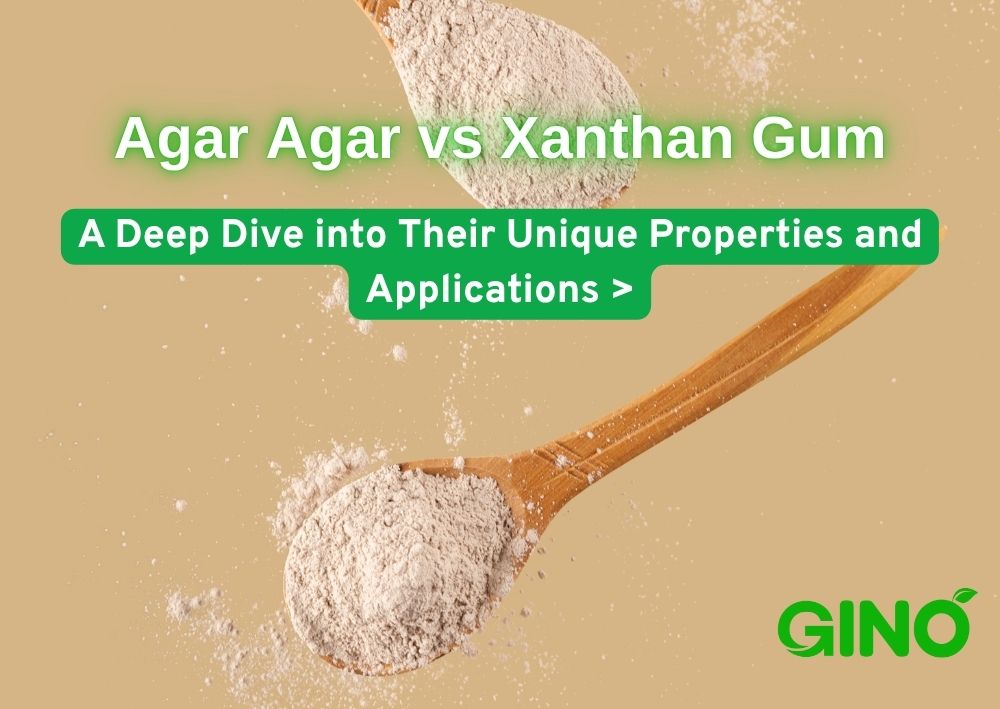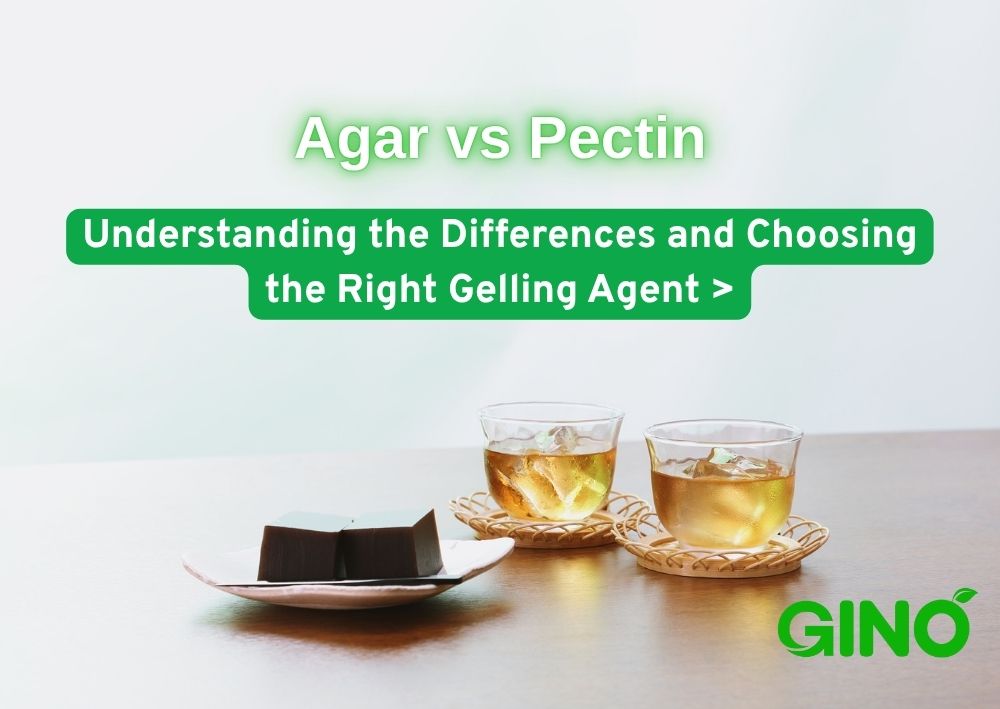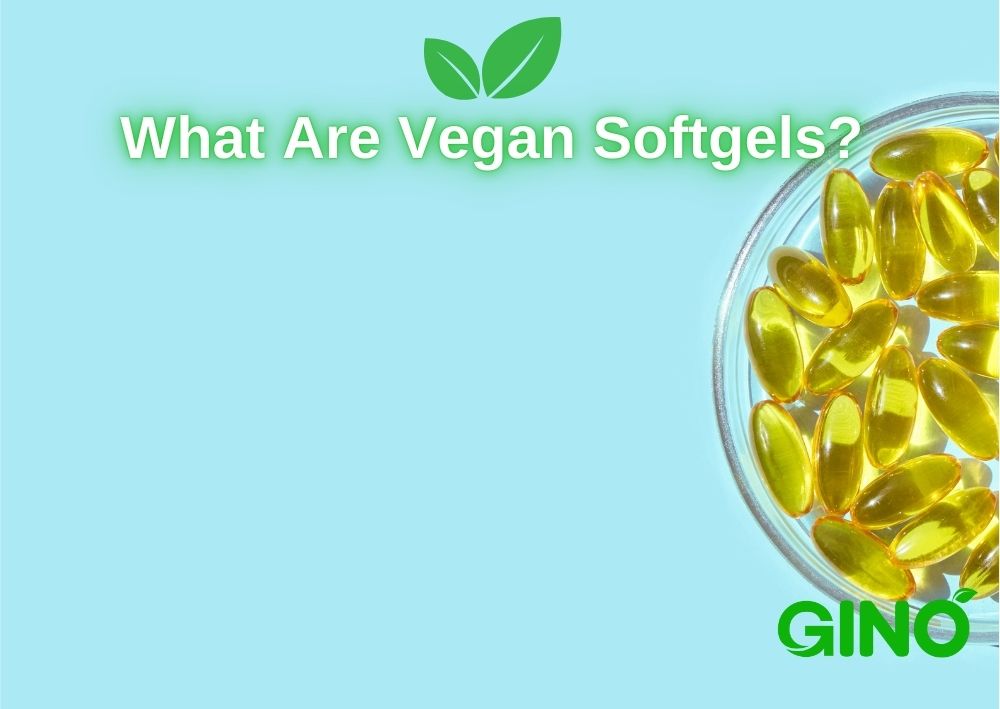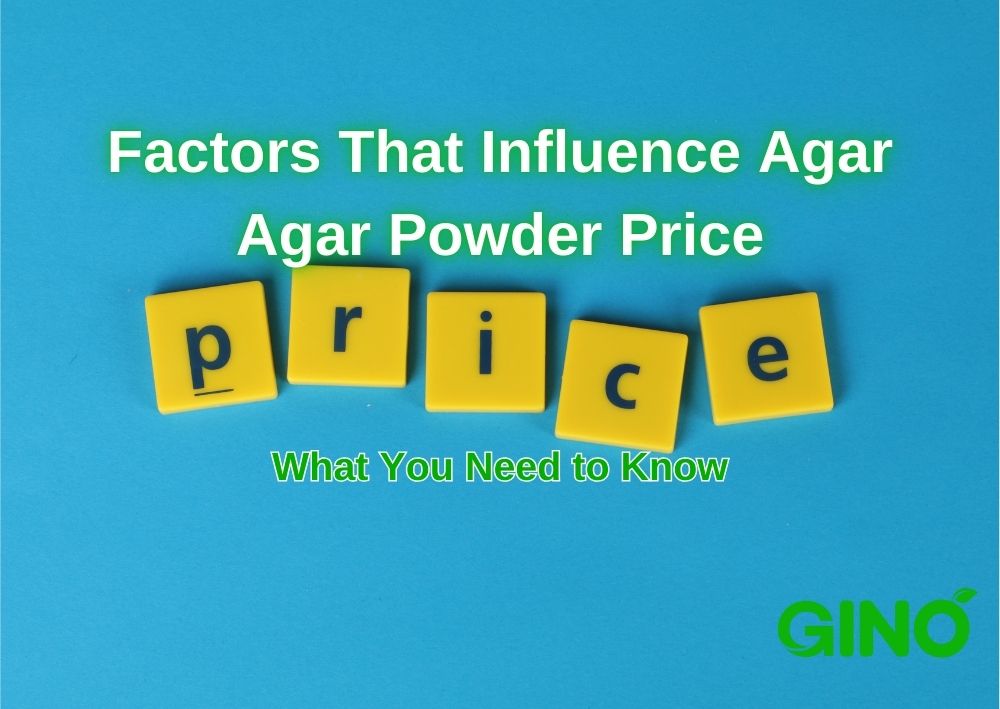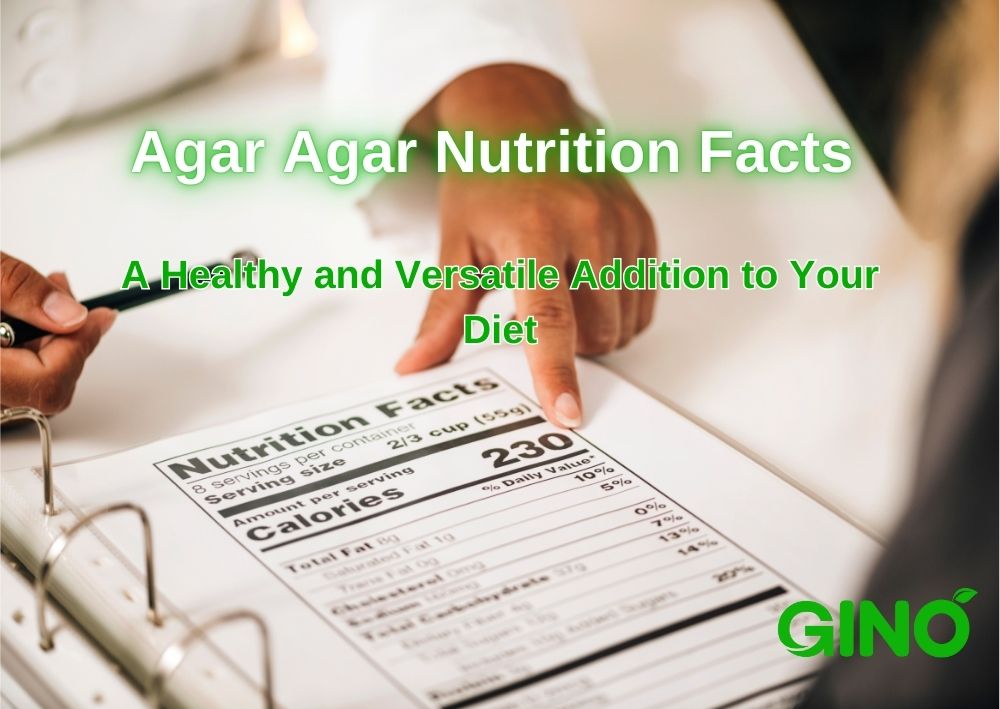For over 10 years, Gino Biotech has been a major supplier of food hydrocolloids. With our variety of plant-based gums & stabilizers, we can create tailor-made hydrocolloid solutions perfectly matched to the needs of our customers. READ MORE
Carrageenan vs Xanthan Gum: Which One Is Right for Your Product?
Carrageenan vs Xanthan Gum
Facebook
Twitter
LinkedIn
Carrageenan vs Xanthan Gum
In the world of food additives, the comparison between carrageenan vs xanthan gum often arises, especially among manufacturers seeking the best gelling, thickening, and stabilizing agents for their products.
Both carrageenan and xanthan gum are widely used hydrocolloids with unique properties that make them suitable for various applications.
This article explores the key differences between these two ingredients, helping you make an informed choice for your food formulations.
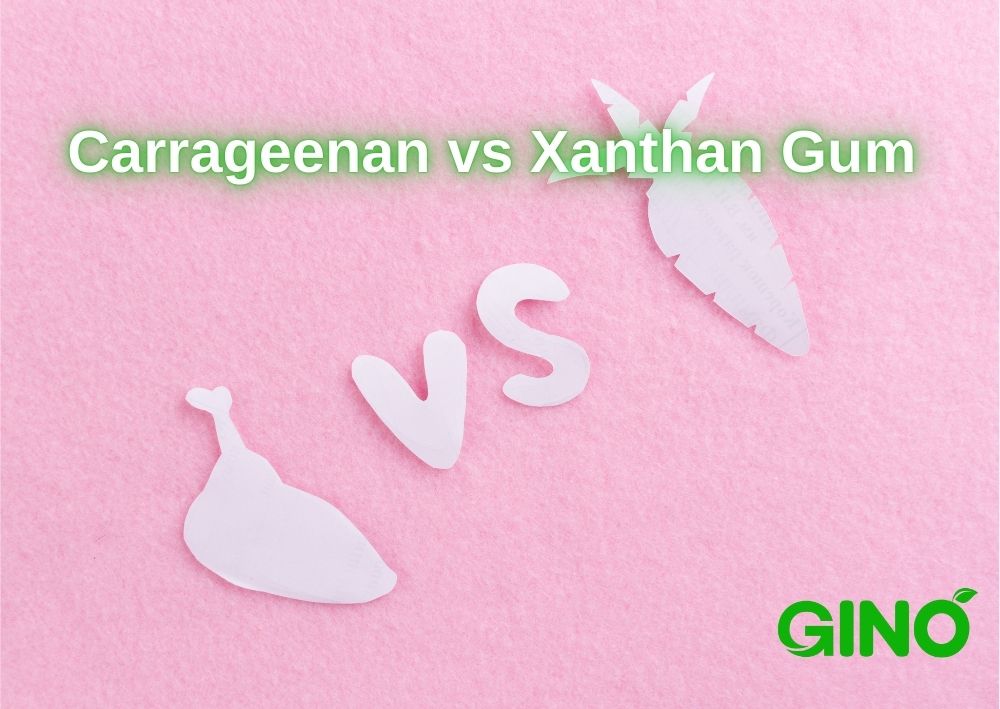
1. What is Carrageenan?
Carrageenan is a natural polysaccharide extracted from red seaweed. It has been used for centuries, particularly in the food industry, for its ability to form gels, thicken liquids, and stabilize emulsions.
Carrageenan comes in different types, including kappa, iota, and lambda, each offering distinct gelling properties. Kappa carrageenan, for example, forms firm gels, while iota carrageenan produces softer, more elastic gels. This versatility makes carrageenan a popular choice in dairy products, meat processing, and plant-based food formulations.
2. What is Xanthan Gum?
Xanthan gum, on the other hand, is a microbial polysaccharide produced by the fermentation of sugars using the bacterium Xanthomonas campestris.
It is renowned for its exceptional thickening and stabilizing properties, even in small quantities.
Xanthan gum is highly effective in maintaining the consistency of sauces, dressings, and beverages, ensuring they remain stable across a range of temperatures and pH levels. Its ability to prevent ingredient separation and enhance texture makes it a staple in gluten-free baking and other complex formulations.
3. Carrageenan vs Xanthan Gum: Key Differences
3.1 Source and Types:
Carrageenan: Derived from red seaweed and classified into three main types: kappa, iota, and lambda, each with varying gelling, thickening, and stabilizing properties. For example, kappa forms strong, rigid gels, while iota creates soft gels.
Xanthan Gum: Produced via bacterial fermentation and consists of a complex polysaccharide structure, known for its strong thickening capabilities. Generally, food grade xanthan gum is available in two mesh sizes, 80 & 200 mesh.
3.2 Properties
Carrageenan: It has unique gelling properties that vary depending on the type. Carrageenan forms gels in the presence of certain ions, such as potassium or calcium. It can create both soft and firm gels and also used to stabilize and thicken food products.
Xanthan Gum: Primarily used as a thickener and stabilizer, known for its high viscosity at low concentrations, xanthan gum is a shear-thinning agent, meaning its viscosity decreases when under stress (e.g., stirring). It is stable across a wide range of temperatures and pH levels, making it versatile in different applications.
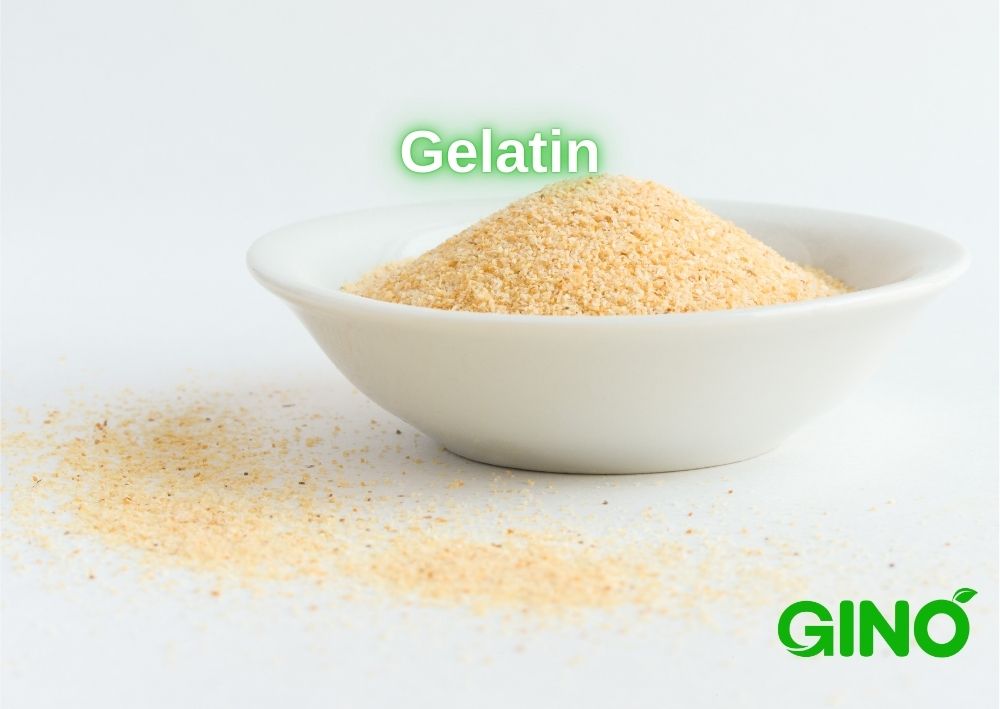
3.3 Applications:
Carrageenan:
- Dairy Products: Used in chocolate milk, ice cream, and yogurt to prevent separation and improve texture.
- Plant-Based Alternatives: Enhances the texture of almond milk, soy milk, and dairy-free cheeses.
- Meat Products: Improves water retention and texture in processed meats like ham and sausages.
- Jellies and Gummy Candies: Provides a gel-like texture and chewiness, offering a plant-based alternative to gelatin.
- Personal Care: Acts as a thickener in toothpaste and stabilizes lotions and creams.
Xanthan Gum:
- Gluten-Free Baking: Provides structure and elasticity in gluten-free bread, cakes, and cookies.
- Salad Dressings and Sauces: Thickens and emulsifies, preventing separation in dressings and sauces.
- Beverages: Stabilizes and thickens juices, smoothies, and flavored waters.
- Cosmetics: Thickens and stabilizes lotions, creams, and shampoos.
- Oil Drilling: Used in drilling fluids to thicken and stabilize the mixture, helping to carry debris to the surface.
3.4 Texture and Mouthfeel:
Carrageenan: Provides a smooth, creamy texture in dairy and non-dairy applications, with the ability to create everything from firm gels to soft, elastic textures depending on the type used.
Xanthan Gum: Contributes to a uniform, stable texture without altering the flavor or appearance of the product. It helps maintain the desired mouthfeel in sauces, dressings, and baked goods.
3.5 Religious and Dietary Considerations
Carrageenan: Carrageenan is generally considered halal, kosher, and suitable for vegetarians and vegans since it is derived from seaweed.
Xanthan Gum: Also considered halal, kosher, and vegan-friendly, xanthan gum is suitable for most dietary restrictions. However, because it is produced via bacterial fermentation, some individuals may have sensitivities or allergies.
3.6 Health Aspects
Carrageenan: Some studies have raised concerns about its potential inflammatory effects, particularly in degraded forms. However, food-grade carrageenan is generally recognized as safe (GRAS) by regulatory agencies like the FDA.
Xanthan Gum: Generally regarded as safe for consumption, though it can cause digestive discomfort in high amounts for some people, especially those with sensitivities.
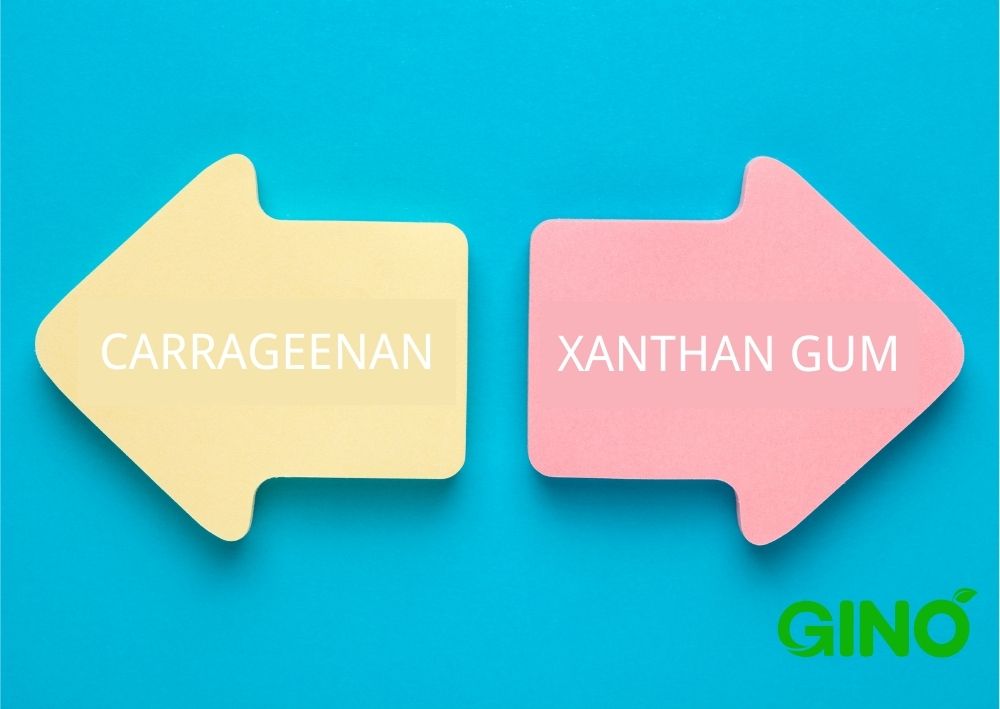
4. Choosing Between Carrageenan and Xanthan Gum
The decision between carrageenan and xanthan gum largely depends on the specific requirements of your product.
Carrageenan is the go-to choice for products requiring gelling and texturizing, especially in dairy and plant-based applications.
On the other hand, xanthan gum is ideal for products that need thickening and stabilizing without the need for gel formation.
Conclusion
In the debate of carrageenan vs. xanthan gum, understanding their differences and applications is crucial to making the right choice for your food products.
Both ingredients offer unique advantages, whether you’re seeking strong gelling properties or reliable thickening and stabilization.
By selecting the right hydrocolloid, you can achieve the perfect texture, consistency, and stability in your formulations, ensuring your products stand out in the market.
As a specialized supplier of high-quality plant-based hydrocolloids, we offer a variety of options, including premium carrageenan and xanthan gum, to meet your specific formulation needs.
Whether you're looking for a reliable thickener, stabilizer, or gelling agent, our products are designed to enhance your food creations.
Contact us today to learn more about how our solutions can benefit your business.
Contact Our teamRecent Posts
About Gino Biotech

We are a biotech company specializing in the research, development, and commercialization of innovative and technological food additives hydrocolloids Agar Agar, Carrageenan, and Tailor-Made Stabilizer Solutions.
With the extended know-how and experience in the research, application, and use of Hydrocolloids, we could provide one-stop-shop customized solutions perfectly matched to the needs of our customers.
Our products cover the needs of the Meat, Dairy, Bakery, Confectionery, and other industrial sectors.




